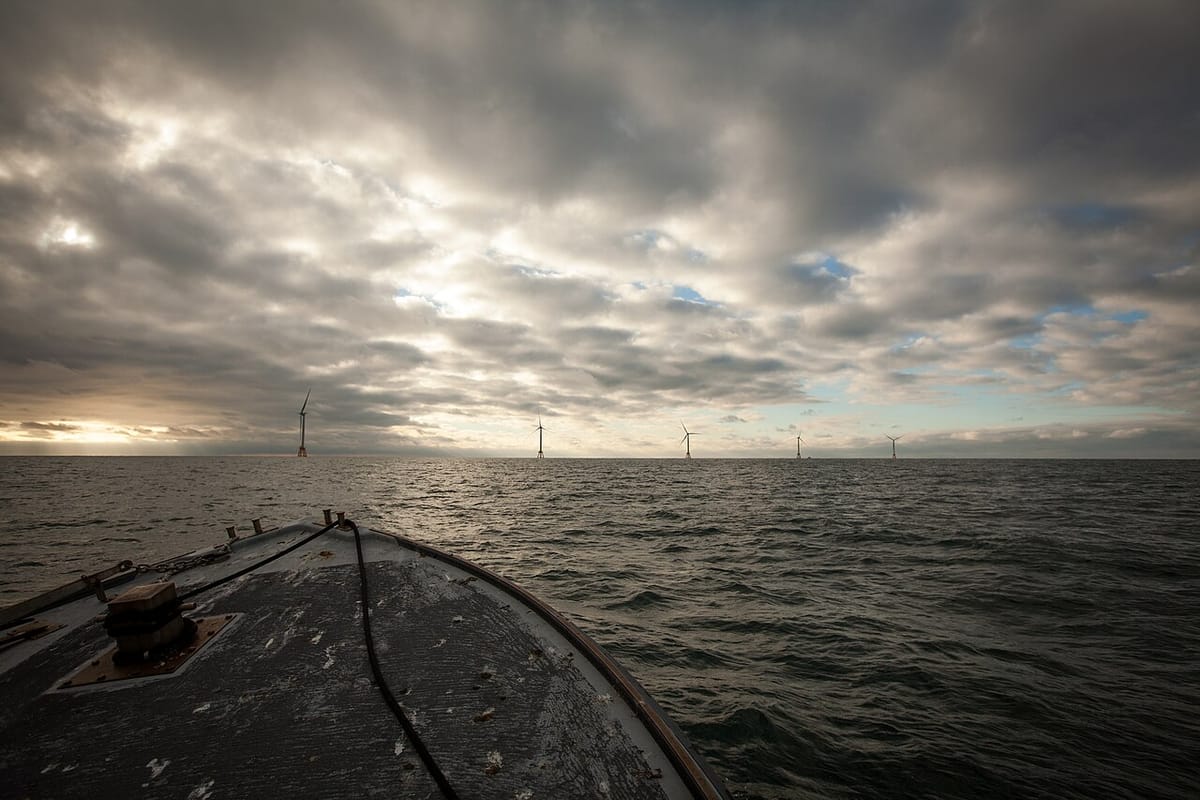The Attempted Murder of Offshore Wind Power

Hello, welcome to my relaunched newsletter, read more about the deal here and please subscribe!
On Friday, the Trump administration filed a motion in the US District Court in Baltimore requesting that the court revoke government approval for the Maryland Offshore Wind Project. The government is arguing that the prior approval by the Bureau of Ocean Energy Management, part of the Department of the Interior, "underestimated impacts to operations by search and rescue helicopters" and that the project's impacts on commercial fisheries "may not be sufficiently mitigated."
Such inanities might seem at least mildly less absurd if this was not just the latest in a string of moves aimed at completely kneecapping the offshore (and to a perhaps somewhat less egregious extent, onshore) wind power industry in this country. At least the Maryland project — approved in December 2024, to feature up to 114 offshore turbines generating enough power for more than 700,000 homes — had not started construction yet; the assault reached its apparent peak in late August, when the acting director of BOEM ordered a company to stop construction on Revolution Wind off the coast of Rhode Island in order to "address concerns related to the protection of national security interests of the United States." That project was 80 percent finished.
The Trump administration's attack on wind energy is, I would argue, the most glaring and grand convergence point of two important strands of his presidency: personal grievance and true-believer corporatism. The guy genuinely hates wind turbines, originally because he was forced to look at them while playing golf in Scotland and over the decades since because things congeal in his mind like year-old cottage cheese, and his most prominent enablers in this endeavor — Energy Secretary Chris Wright, Interior Secretary Doug Burgum, and others in his Cabinet — genuinely want the renewable energy revolution to crumble at the wizened, ashen feet of the fossil fuel industry.
The result is an administration unleashing every fresh hell at its disposal in order to take down wind power. EPA, HHS, even Commerce and the Pentagon — all are apparently hard at work drafting the thinnest veneers imaginable to justify the takedown. The Revolution Wind order followed other permit revocations and on an earlier halt to Empire Wind, in New York waters, which was 30-percent complete; the DOI responded to a Freedom of Information Act request regarding that decision by releasing a 27-page report on the decision that was almost entirely redacted.
And while the primary target has been turbines spinning offshore so far, in some ways that was the easier target — the US offshore wind industry was only just getting off the ground, decades behind Europe and China, thanks to extremely grim high-profile fights like that over Cape Wind. The onshore wind industry is much more mature — we had around 9,000 megawatts installed in 2005, and almost 140,000 MW by last year — but it is very much on the chopping block as well.
"A big problem we're dealing with right now is absolute lack of any guidance from above," said a source at the Bureau of Land Management, which issues permits for wind projects on federal land. "All we know is the DOI director has to review and sign off on all wind and solar projects, but there is no process laid out on how to go about doing that, and even if there were, they've created a bottleneck."
This seems to be a proactive strategy — I reported back in April how Commerce Secretary Howard Lutnick was doing something similar to slow the National Oceanic and Atmospheric Administration to a crawl, demanding that he personally approve every contract and refusing to lay out a process for grants and other funding requests to actually reach his desk. "It’s completely unserious," one source at NOAA told me then.
At DOI, Burgum has made the wind shutdown more explicit, announcing an end to "preferential treatment" for renewable projects while propping up oil and gas.
"We're trying to figure out how to operate with nothing in writing, with our managers put in a position where we're unable to approve projects but also have no legal avenues to deny them, and no one in the administration willing to put anything in writing or even give 'off the record' verbal instructions," the BLM source said.
All of this is proceeding, of course, while an "energy emergency" swirls around us. Declared via executive order on his first day in office, this theoretical emergency is so dire that 80-percent-complete wind farms capable of powering 350,000 homes should stop construction while coal plants scheduled to retire are forced to stay open, 90 days of excess asthma attacks and ER visits at a time. Obviously, pointing out logical inconsistencies and hypocrisy from this administration is tantamount to hucking water balloons at the sun, but it rankles nonetheless. Solar and wind power are the fastest growing sources of power out there; anyone honestly worried about the grid, even putting climate concerns aside, would throw gobs of money and support in their direction rather than slicing angrily at their heels with bureaucratic and administrative scalpels.
"We're got permitees at various stages of projects they've already invested time and money into who are getting frustrated with us because we have no answers for them," the BLM staffer said. "We do not know or even know how to find out how to help these permitees keep their projects moving forward. We can't even give them a timeline."
Offshore, where the pearl-clutching over helicopter safety and whale health and so on is so genuine that the DOI has announced thirty new auctions for offshore oil and gas development, the dimmest of bright spots — the Danish company building the Rhode Island farm Ørsted filed a lawsuit over the order to halt construction, with blue state governments joining in earlier this month. Connecticut's attorney general William Tong said the "national security" claims amounted to "zero justification."
"This kind of erratic and reckless governing is blatantly illegal, and we’re suing to stop it," he said in a statement.
Whether that one wind farm is able to complete construction isn't necessarily relevant, though, to the chilling effect this will all obviously have on the rest of the industry. If you were a European energy giant, why would you risk billions of dollars on the off chance that the whims of a petty autocrat can't quite compete with a court order? With the move in Maryland last week, almost every offshore project at some stage of development has now been targeted — with one notable exception in Virginia, home to a Republican governor. Though the Trump grievance against "windmills" is as real as any belief for a guy who basically lacks object permanence, there can always be exceptions for his friends; after all, none of his golf courses are anywhere nearby.




